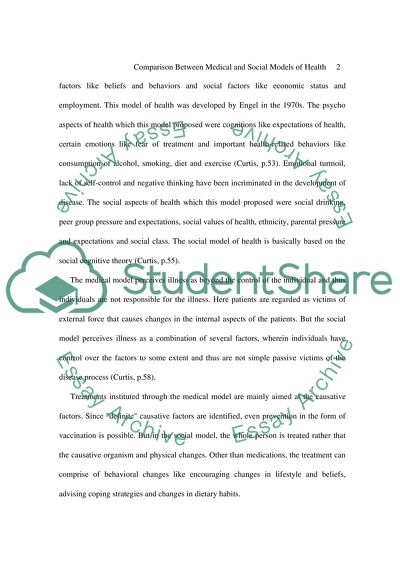Cite this document
(“Define the medical model of health and describe the differences when Essay - 1”, n.d.)
Define the medical model of health and describe the differences when Essay - 1. Retrieved from https://studentshare.org/miscellaneous/1573850-define-the-medical-model-of-health-and-describe-the-differences-when-compared-to-the-social-model-of-health
Define the medical model of health and describe the differences when Essay - 1. Retrieved from https://studentshare.org/miscellaneous/1573850-define-the-medical-model-of-health-and-describe-the-differences-when-compared-to-the-social-model-of-health
(Define the Medical Model of Health and Describe the Differences When Essay - 1)
Define the Medical Model of Health and Describe the Differences When Essay - 1. https://studentshare.org/miscellaneous/1573850-define-the-medical-model-of-health-and-describe-the-differences-when-compared-to-the-social-model-of-health.
Define the Medical Model of Health and Describe the Differences When Essay - 1. https://studentshare.org/miscellaneous/1573850-define-the-medical-model-of-health-and-describe-the-differences-when-compared-to-the-social-model-of-health.
“Define the Medical Model of Health and Describe the Differences When Essay - 1”, n.d. https://studentshare.org/miscellaneous/1573850-define-the-medical-model-of-health-and-describe-the-differences-when-compared-to-the-social-model-of-health.


